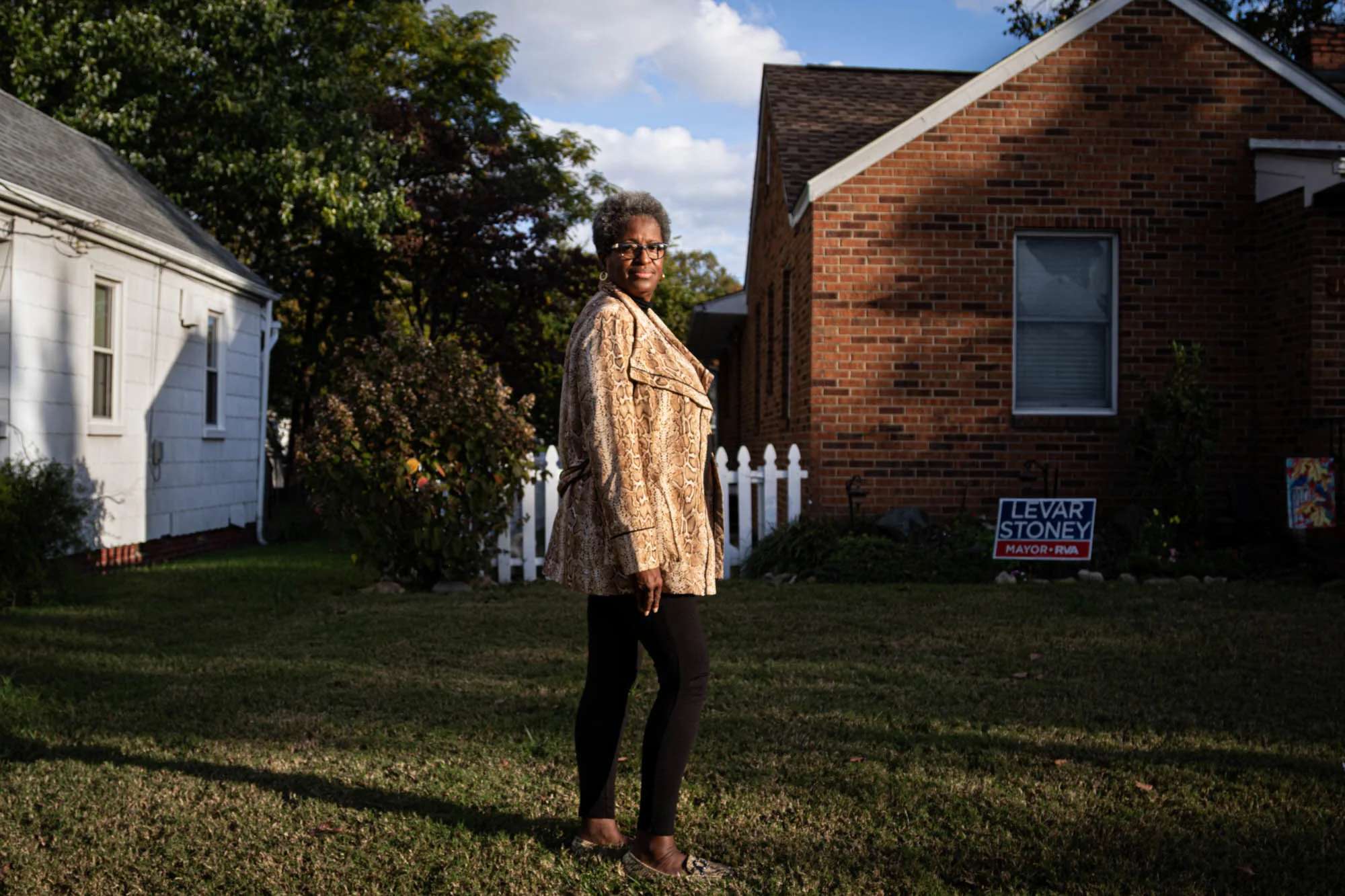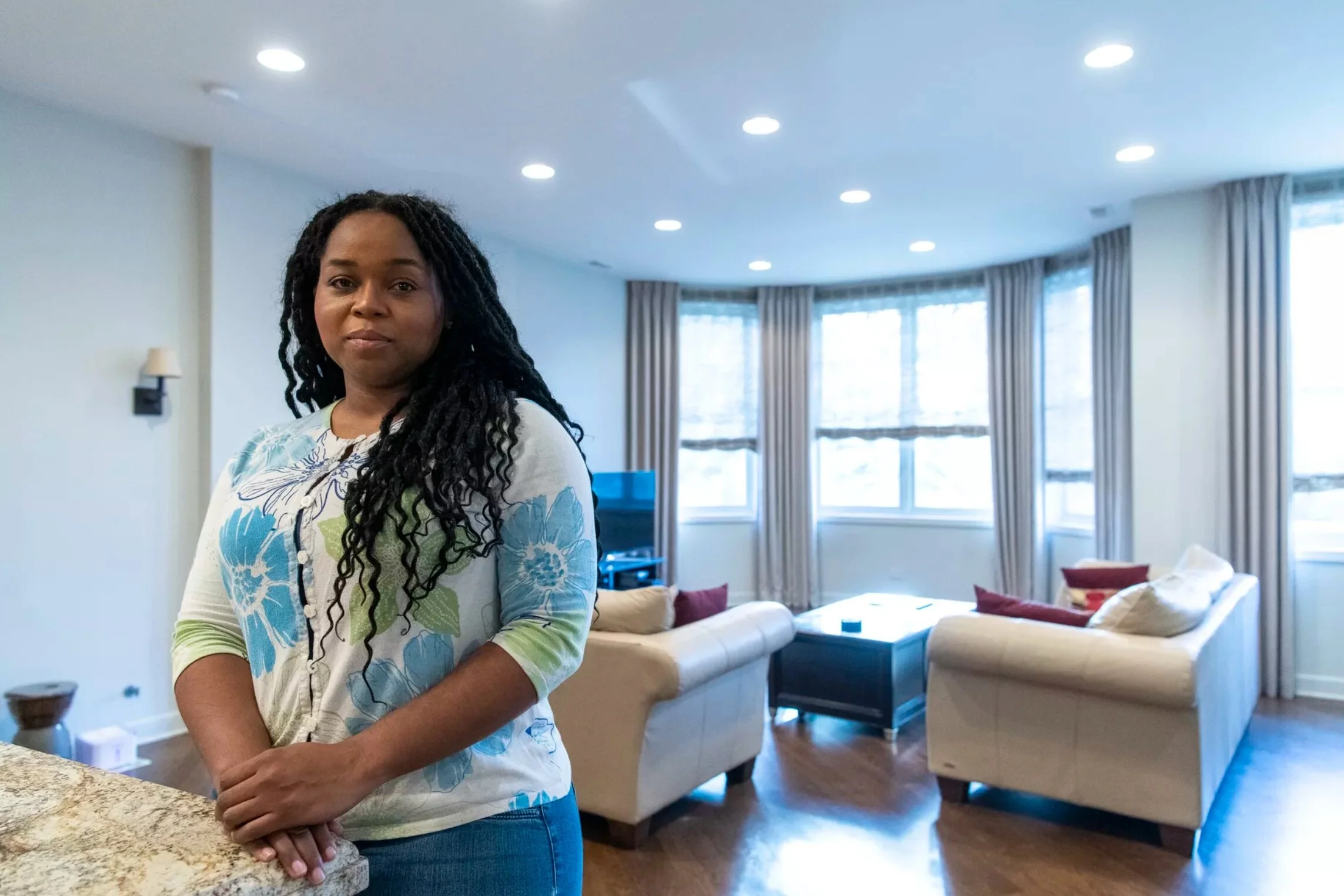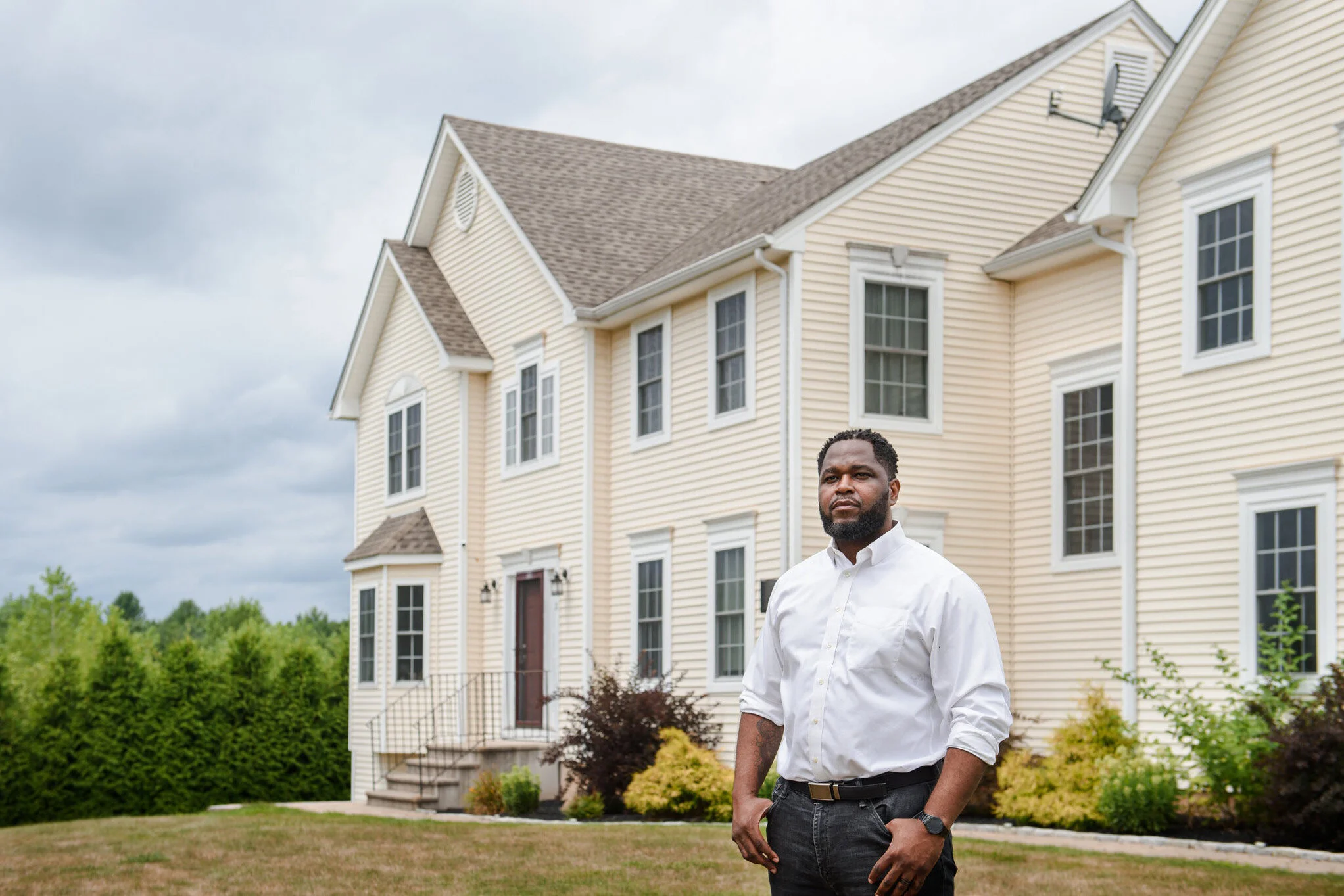The winners of Fast Company’s 2021 World Changing Ideas Awards were announced today, honoring the businesses, policies, projects and concepts that are actively engaged and deeply committed to pursuing innovation when it comes to solving health and climate crises, social injustice or economic inequality.
Greenlining Realty USA was selected as a finalist in the Spaces, Places and Cities category for Woodlawn Pointe, a project that includes the construction of seven new single-family homes and two fully renovated homes. Greenlining Realty USA partnered with the National Community Reinvestment Coalition’s GROWTH initiative, the Chicago Land Bank and Constructive Renovations to develop the homes in the historic Black neighborhood of West Woodlawn on the South Side of Chicago. Built in 2020, Woodlawn Pointe’s home design highlights the neighborhood’s historic architecture and the projects are named after famous residents.
“Individuals like myself stand on the shoulders of so many giants who’ve gone before me.” Founder Lamell McMorris joined civil rights icon Dr. Ben Chavis, Jr. on his morning news show Let it Be Known that he hosts with Black Press USA correspondent Stacy Brown. They discussed the importance of investing in Black communities after centuries of disinvestment and discrimination. Watch their conversation here.
"Single-family exclusive zoning, which was adopted by communities shortly after the Supreme Court struck down explicit racial zoning in 1917, is what activists call the “new redlining.” Racial discrimination has created an enormous wealth gap between white and Black people, and single-family-only zoning perpetuates that inequality."
On Monday, the Chicago Mayor’s Office announced the release of the “Blueprint for Fair Housing,” a plan to address the City’s housing segregation, disparities in access to opportunity, and history of inequitable investment. The Blueprint sets the following eight goals for the City of Chicago and the Chicago Housing Authority over the next five years to further the cause of fair housing and make Chicago more equitable.
"Broadband allows us to work from home, connect with loved ones, find jobs, educate our children remotely, and get medical attention virtually. Too many people across the country live without broadband, either because it's not available, affordable, or accessible, and this needs to change." Founder Lamell McMorris discussed the issue of unequal broadband access in Lifewire. Read the article here.
This title sequence sets the scene for Amazon’s THEM, a new horror anthology series that explores terror in America from creator and executive producer Little Marvin and executive producer Lena Waithe.
“It’s important for words and deeds to match.” Greenlining’s Founder Lamell McMorris was proud to provide insight in Forbes on how companies can handle being held accountable for their political donations and policy positions. It is critical for companies to navigate public scrutiny by being consistent in their positions both externally and internally – hypocrisy has no place here. If a company is going to proclaim support for a policy position, then their actions must be consistent. Read the full article here.
“Leadership that understands every moment, every second, every minute is consequential.” Founder Lamell McMorris spoke at the Harvard Extension School Student Association's 20th Anniversary about the complexities of leadership and how to be an effective leader during this difficult time. Check out his speech here.
With Black communities reeling from the devastation of COVID-19, the time has come to pass sweeping racial justice reform. Founder Lamell McMorris co-authored a piece with JWU North Miami’s President Dr. Larry Rice in the Washinton Informer on critical racial justice legislation that needs to be passed now. Read it here.
Today, Evanston, IL became the first U.S. city to make reparations available to Black residents! We applaud Evanston for taking this important step in beginning to confront the lasting effects of redlining, slavery and centuries of discrimination.
This is directly connected to the work we do Greenlining Realty USA as we are dedicated to redressing the effects of redlining by investing in previously redlined communities and promoting Black home ownership. We hope that other cities will follow in Evanston’s footsteps and join us in confronting the lasting devastation of redlining.
We’re proud that Founder Lamell McMorris’ and Dr. J.D. LaRock's Inc. Magazine op-ed was in U.S. Senator Chris Coons’ recent push to support small businesses and foster entrepreneurship in underserved communities through his bipartisan bill, the Next Generation Entrepreneurship Corps Act. The bill seeks to encourage new businesses and job creation through a competitive fellowship, access to capital, networking opportunities and more. Bold new ideas like this are critical to creating an inclusive capitalist system that Lamell and his co-author J.D. LaRock wrote about in their Inc. op-ed. Read more about the bill below here.
Greenlining’s founder Lamell McMorris joined other Chicago housing experts on an ABC7 Chicago town hall where he spoke about our work investing in historically redlined and neglected communities such as Lamell’s home neighborhood of West Woodlawn. Lamell talked about the importance of true neighborhood transformation in which education, health care and job creation is paramount. Check out the conversation here.
We applaud the Chicago City Council for granting Emmett Till’s childhood home in West Woodlawn landmark status. In September, Greenlining’s Lamell McMorris penned a letter to the editor in Crain's Chicago advocating for this move. He stated that Emmett's home is a lasting physical symbol of his life and legacy, and that his home should become a place of pilgrimage and reflection. We are proud of BIG: Blacks in Green for purchasing the property and for their stewardship of the Emmett and Mamie Till-Mobley home and neighboring properties in West Woodlawn. This is the right step in ensuring that Emmett Till's martyrdom is never forgotten.
Today, we reflect on how to honor Dr. Martin Luther King Jr.’s legacy and continue his life’s work. Our founder and managing principal Lamell McMorris co-authored a call to action in Inc. Magazine urging Americans to make the tools of capitalism and economic empowerment available to Black Americans, furthering King’s dream of economic equality. Homeownership is key to this goal. Read Lamell’s piece here.
Through a streamlined operation, Ms. Scott has given away $6 billion this year, much of it to small charities and nonprofits.
Pitching to NABCO and NOBCO, Secretary nominee Pete Buttigieg noted bipartisan enthusiasm for more infrastructure investment, but acknowledged past plans have ended up relying on local governments to pay.
Congratulations to our partner YWCA Metropolitan Chicago who recently received a $9 million dollar gift to support their work empowering women and families and furthering racial justice in our community. We’re so lucky to work with the YWCA to provide opportunities to local Chicagoans and invest in historically marginalized communities like West Woodlawn!
Woodlawn Pointe’s 6556 South Evans Avenue is Now Complete! We’re so proud of Woodlawn Pointe, a group of high-quality homes that are part of our 360-degree approach to community development.
Torey Edmonds has lived in the same house in an African-American neighborhood of the East End of Richmond, Va., for all of her 61 years. When she was a little girl, she says her neighborhood was a place of tidy homes with rose bushes and fruit trees, and residents had ready access to shops like beauty salons, movie theaters and several grocery stores.
The 1968 Fair Housing Act outlawed redlining nationwide. But the disastrous effects of the discriminatory practice are still contributing to today's wealth gap between Black and White Americans.
The owner thinks her lower home appraisal was skewed by her race and her neighborhood — and a recent study says those factors play more of a role in appraisals now than in 1980.
“One of the pathways to eradicating systemic inequities and systemic racism is to INVEST. Where you drew red lines, let’s green line, let’s spur jobs, let's spur investment, let's bring housing equality, let's bring education infrastructure, let's invest in the schools in my neighborhood.” -Lamell McMorris
Companies that value homes for sale or refinancing are bound by law not to discriminate. Black homeowners say it happens anyway.
There are places like Gilpin all across the United States. In cities like Baltimore, Dallas, Denver, Miami, Portland and New York, neighborhoods that are poorer and have more residents of color can be 5 to 20 degrees Fahrenheit hotter in summer than wealthier, whiter parts of the same city.
Anniversaries afford us important opportunities to reflect, but this year we approach the 57th anniversary of the 1963 March on Washington for Jobs and Freedom having already had more than enough time and cause for reflection. At a moment when the fatal inadequacies of our public health and public safety systems are finally, powerfully and painfully clear not just to Black Americans, it's hard to imagine that anyone needs to be reminded of what Dr. Martin Luther King Jr. called, the "fierce urgency of now." And yet, this urgency is still being met with reactionary or performative change, as opposed to systemic reckoning.
“Chicago should really take the lead … say let’s be a model for the rest of the world and not be afraid to say when we talk about desegregating the city, we’re talking about creating a more equitable Chicago for everyone.”
In a virtual groundbreaking video for its first major development in the Woodlawn neighborhood last month, development firm Greenlining Realty featured speakers such as Pete Buttigieg, Martin Luther King III and Rev. Al Sharpton.
Greenlining Realty USA, a national real estate development firm committed to undoing the historic damage caused by the discriminatory practice of redlining, recently unveiled its first major development in the Chicago neighborhood of Woodlawn. The virtual groundbreaking of the Woodlawn Pointe development featured nine vibrant homes in the historically redlined district, serving as a tribute to this effort to provide quality homes in communities of color.































